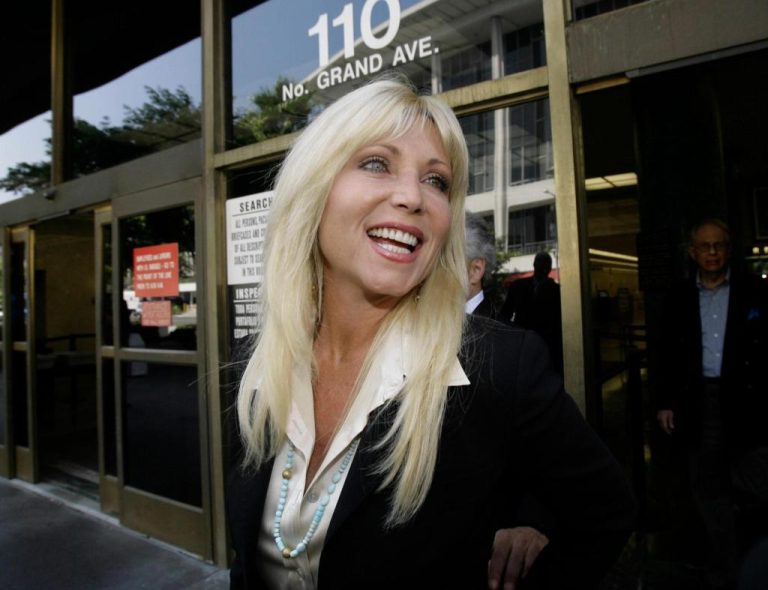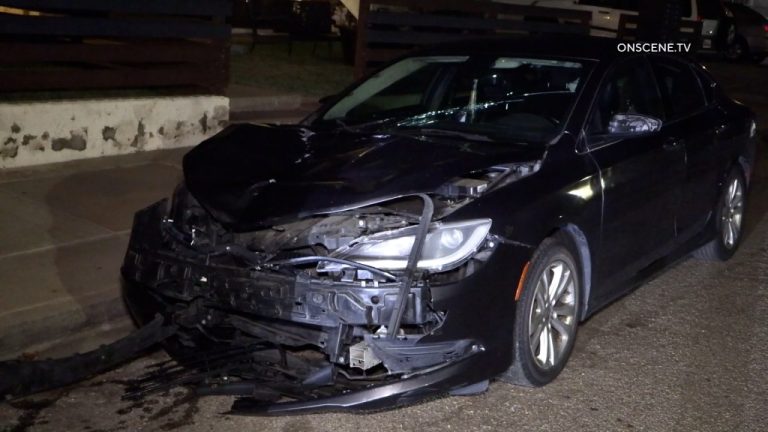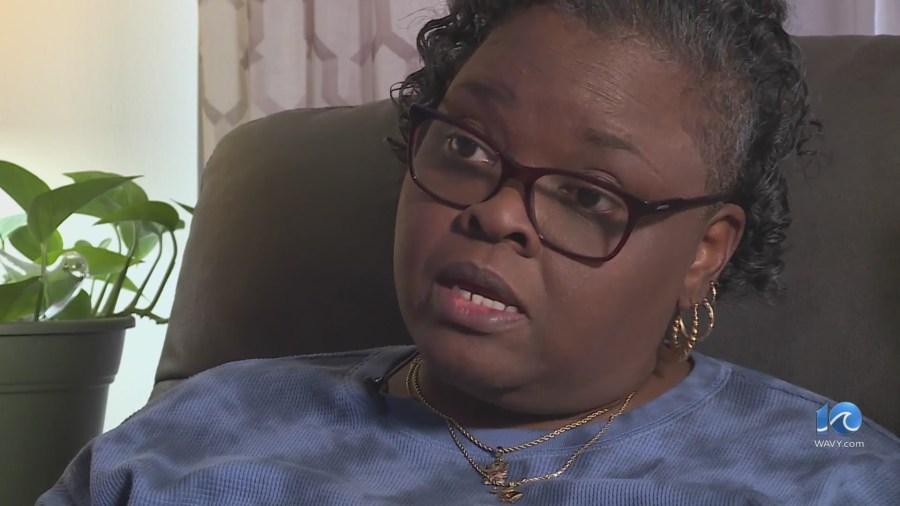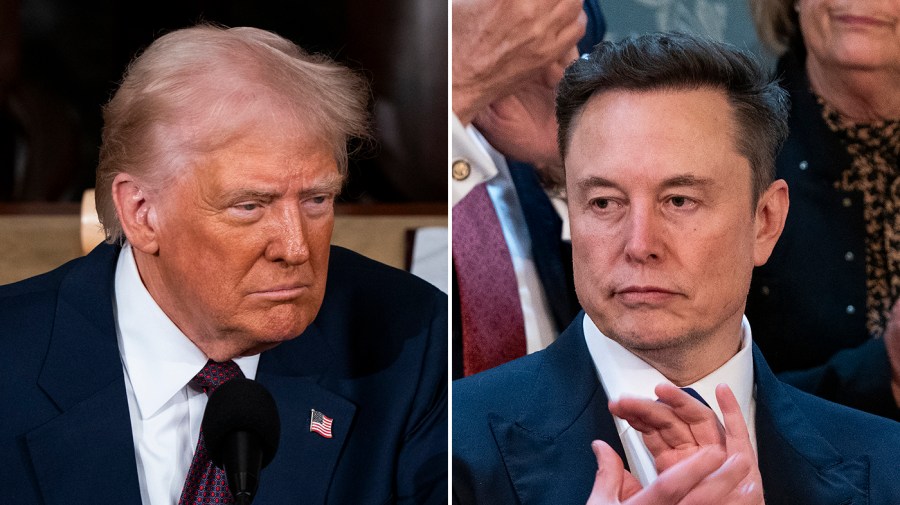
Chida Warren-Darby is an aide to Mayor Todd Gloria, serving as boards and commission director, and previously was managing editor and publisher of Voice and Viewpoint, San Diego’s most prominent Black newspaper. She’s running to represent District 4 on the City Council.
To help inform voters, the San Diego Union-Tribune asked all the candidates a series of the same questions about their priorities, positions and campaigns. Their emailed answers have been lightly edited for clarity.
Why are you running, and what makes you the best candidate?
District 4 is my home, and its success is my priority. I have lived in the district for over 40 years. I went to school in District 4 and ran my family businesses — the Voice & Viewpoint newspaper — in the district.

Sadly, I haven’t seen much change over the years. The residents deserve the deliverables they’ve been seeking. The recent storms have revealed that. I’ve witnessed the lack of communication and transparency between the government and constituents.
I want to change that. I ask the questions that need to be asked and deeply desire to repair City Hall’s broken systems.
I would say one of the reasons voters should support me for the job is that I was the only candidate who even put effort into a storm recovery plan and proposed policies to make our community whole. I function with the integrity needed to finish unfinished tasks.
What are the top 3 issues facing this district and the city generally?
Economic development is the primary issue facing the district. Residents have been asking for decades for businesses that serve their needs in the community. My constituents shouldn’t have to go to North Park, Adams Avenue, La Jolla, Mira Mesa or downtown for restaurants, retail and grocery stores that meet their needs.
Sustainable housing is another huge issue that residents face in District 4 communities. We should have a housing supply that fits the needs of families, seniors and young people and makes sure the residents who have lived in the district their whole lives aren’t displaced by gentrification.
Lastly, infrastructure is a huge issue in District 4 and across the city. We need to think creatively about what sustainable infrastructure looks like so that we aren’t ravaged by storms, potholes and unwalkable communities. We need human-centered infrastructure built by us, for us.
What are the first 3 things you would do in office if elected?
I will propose my storm recovery plan to the full City Council as part of the city’s fiscal year 2025 budget process to ensure our neighborhoods aren’t devastated by future storms and our critical infrastructure needs are actually fulfilled. This includes an equity layer within the city zoning code so that residents can protect their homes and communities. As part of this plan, the creation of a recovery and resiliency fund will ensure our neighborhoods are reconstructed in a way that centers our residents and ensures that people living in District 4 have the quality of life they deserve.
I will send a survey to all District 4 residents and host a town hall in every neighborhood to make sure the district gets the top three projects we want funded this year.
I will open negotiations with Target, Aldi, Vons, Albertsons and Sprouts to finally deliver the grocery stores we have been asking for.
Do you support a 1-cent city sales tax increase? Why or why not?
I understand that the city desperately needs to increase revenue. However, our residents also desperately need financial relief. I can support the 1-cent city sales tax increase, with the caveat that we are able to communicate exactly what the funds will go toward.
What should the city do to combat its housing crisis? Do you support the city’s controversial Complete Communities developer incentive program?
Diversify the types of housing solutions offered to residents. The city has made some progress with recent housing policies; however, we need to consider proposals that think about how our residents live and navigate their communities.
We need to build more housing using as many innovative solutions as possible, and while I support the ideals of Complete Communities, I will ensure on the council that we take equity into the equation, and not just throw up buildings that have no parking and unreasonable distances from transit and ignore the broader needs of the community.
How should public safety and civil liberties be balanced when it comes to homelessness enforcement, behavioral health policy and police surveillance?
I have proposed a comprehensive overhaul of our public safety infrastructure, because we need to include safety policies that put residents at the center, not brute enforcement. Policing is important to our neighborhoods, but so is making sure our residents have diverse resources to combat mental health challenges.
I support us finding sustainable solutions to care for individuals who can’t care for themselves, and sometimes, that requires the public to make decisions on their behalf. But residents need to make the decisions on what their public safety infrastructure looks like, not politicians turning us into a surveillance state.
Recent flooding has brought new attention to failures of city infrastructure, and how the effects of climate change can disproportionately impact poorer neighborhoods and communities of color. How should the city combat this? And do you support raising the city’s stormwater fee or a similar tax?
The city should recognize and acknowledge that these communities were set up for failure from the beginning. We need to establish policies that don’t just address redlining but aggressively correct it so that all of our residents can live and thrive in this city.
My equity layer proposal is a starting point. By proactively informing residents about how their homes and communities could be impacted by natural disasters, they are in the driver’s seat to tell the city what they should do to fix it.
I support a dedicated climate resiliency revenue source to enhance and maintain our infrastructure.
The city faces a big budget crunch, along with a nearly $5 billion infrastructure funding shortfall. What services should be cut, where should more revenue be sought, and what else should the city do?
The city should ensure that baseline services and critical infrastructure are always fully funded. What I would like to see is the city do a comprehensive efficiency review to ensure we are being the best stewards of public dollars and not wasting money where it could be better prioritized. Perhaps the city should consider a dedicated municipal income tax on high-income residents.







